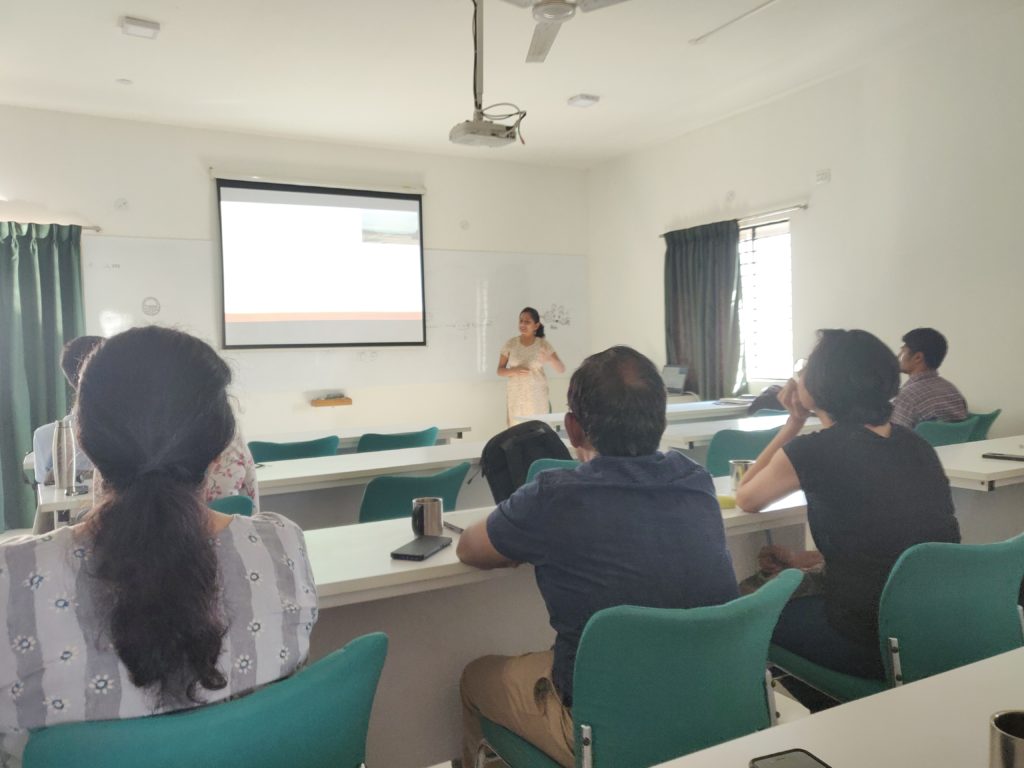
Dhee addressing the audience
Bangalore: Whether it be the folklore of Himachal Pradesh where locals believe that the leopard guides people to their homes, or in Sumatra where the tiger takes on that role, these lores and beliefs play an important role in people accepting wildlife and co-existing with them. The curiosity and willingness to learn as well as an empathy with the animal, often believed to be an ancestor, and vested with a sense of self, is something that allows for peaceful cohabiting of shared spaces.
At a talk organised in the WCS-India premises, conservation researcher Dhee shared insights from three studies across three different landscapes and involving three species of wildlife. People's perception of animals -- Sloth bears (Melursus ursinus) in Karnataka, Leopards (Panthera pardus fusca) in Himachal Pradesh and Tigers (Panthera tigris sumatrae) in Sumatra were gathered during the studies in the form of interviews and analysed.
"What we saw is that people know quite a lot about these animals and seem to know about their movement and behaviour. This in fact helped them negotiate space with the wildlife," said Dhee. That and a certain belief system where the people ascribe a sense of self to the animal helped avoid negative interactions. Animism where a soul is attributed to each animal and a religious belief in soul transmigration, wherein ancestors take on animal forms, etc also helped in keeping conflicts in control as also in accepting some of the fall-outs of the interaction.
Anthropomorphism that attributes human characteristics to animals also helped encourage a behaviour conducive to wildlife conservation, said Dhee, recollecting from her interactions with the people. Rural communities with their belief systems hold the key to how humans can amicably share space with wildlife, given their willingness to learn as also their empathy.
Dhee is a conservation oriented researcher who has recently completed her Masters in Conservation Biology from the University of Kent and has a Bachelor's degree in Psychology from Ambedkar University, Delhi.